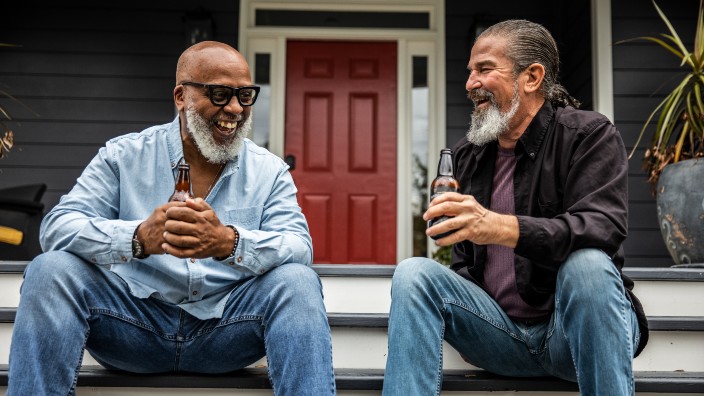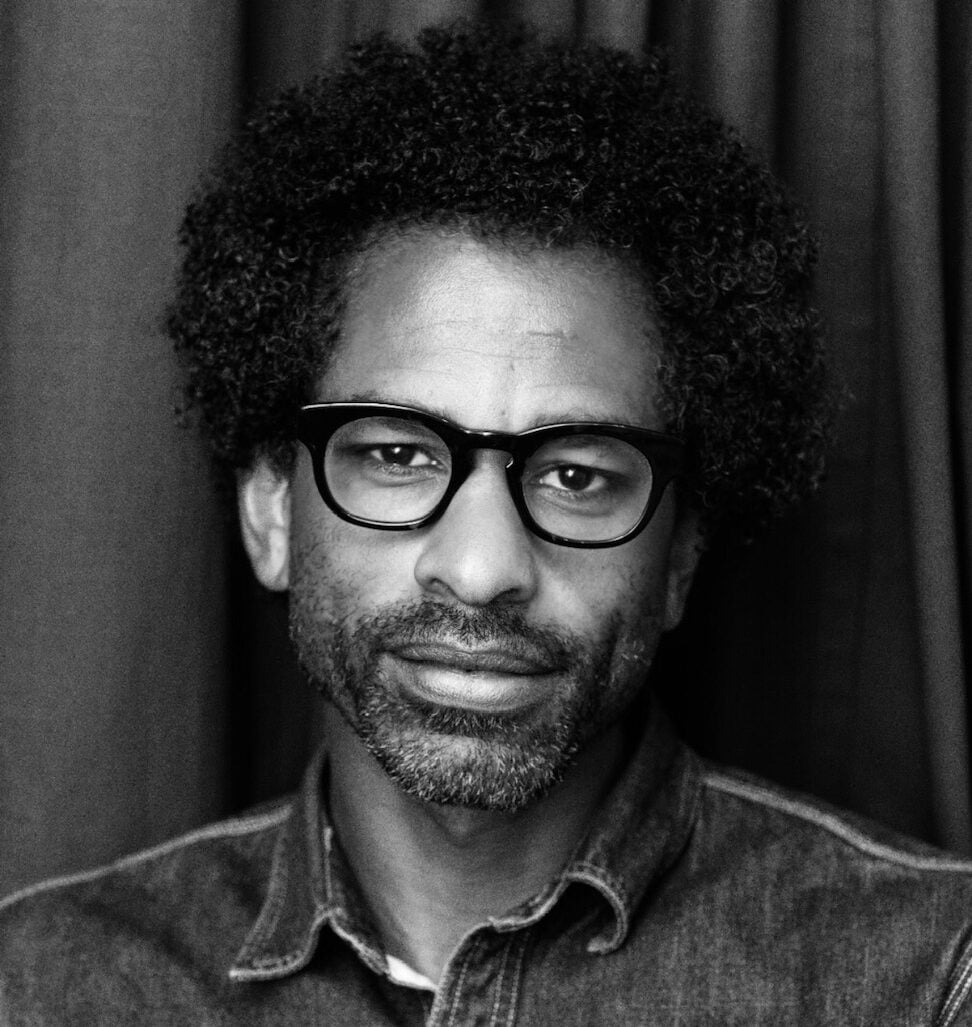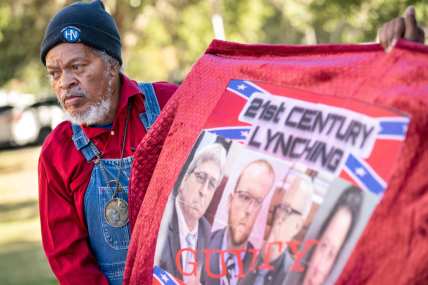Can we really be friends with white people?
OPINION: Black people shouldn’t feel guilty about having strict boundaries with white friends to protect their inner peace.

It’s hard being friends with white people. I mean being really close — to where you really let them into your heart of hearts.
We as Black people love to talk about “the cookout” in terms of a fictional place where Black people can come together and be comfortable. But when we mention “the cookout,” it’s usually a chance to introduce a white person who’s cool enough to be invited to the cookout. We’re saying this white person is so down with us, we’d be comfortable with them joining a Black space.

Well, being a real friend — with whom I share real thoughts and deeper feelings, where I take off my mask and keep it 100 — is like coming to my personal cookout. I’m sharing my food, my affection, my respect, my spirit. No one can hurt you more than the people who get the closest to you, and I can’t have any white people at my cookout who would ever say something that would make the needle scratch. I can’t have someone enter my heart and then disturb my peace. When I think about the white people I truly love — and there are several — I know I can truly trust them.
But it’s hard to get there. Let me point out some of the hurdles.
For one thing, after we’re really close, like, after I take off my mask and get real, I can’t be asked to debate certain things. To be a real friend, we must be simpatico on the core issues that guide my Blackness. For me to be close to you means I can trust you. Trusting you means when it comes to the most crucial architecture of my political life, you get it. To be my friend, I have to know that you’re on my side, that you’re an ally. That when the race war breaks out, you’ll be like, Nah, I’m helping the Black people.
There are many things I’m happy to argue with my friends about. Was that a great movie or not really? Is the Democratic Party going in the wrong direction? Is Kanye insane or genius? Is the GOAT Jordan, Kobe or LeBron? But there are some things that I will not argue about with people who want to be considered real friends. I believe that systemic racism is a central part of America’s history and its present, and it’s a huge part of explaining why Black Americans are where we are. I believe that critical race theory and The 1619 Project are crucial and accurate ways of looking at American history. I believe Black Lives Matter is an important and valuable movement. I will not debate these things with people who want to be friends. Either we can be friends or debate these issues, but it can’t be both.
Second, to be my friend as a white person, you can’t be oblivious. You have to be aware of your white privilege. You don’t have to apologize for it, but I have to know that you know you have it. I also need to know that while you know you have privilege, I won’t ever have to feel your entitlement. White entitlement can come out in small, subtle ways you may not even notice. If you’re unaware of how race functions, you won’t even pick up on you emanating it. Above all, I’m not here to educate you. That’s a white-centric interaction. If you really want to know something, the information is readily available in books, documentaries, etc. If you come to the interaction aware of racial realities, we can be friends. If you need me to teach you, I’ll feel otherized and bored.
Also, to be my friend, I have to be able to be fully me with you — and sometimes, that means saying something like, “White people are frustrating.” If that shocks you, then this is not going to work. I will use the n-word in conversation from time to time. If that’s a problem, we aren’t going to be close friends. I’m someone who loves Black culture and who sees the world through a Black gaze; I want to talk about Atlanta and Zola and Slave Play and Miles Davis. If I go to a movie, I’m going to notice how they use Black characters or that there weren’t any. If we talk about politics, I’m definitely thinking about how this issue impacts Black people.
To be my close friend, you have to be able to roll with all of that. You have to be at home talking about and engaging in Black culture. If I feel like I have to edit myself to be with you, we can’t be close friends.
I admit I enter into any potential friendship with a white person with my guard up; I’ve been hurt by white friends before. We started moving toward a friendship, and then they’d say or do something that broke one of these rules and forced me to put distance between us. I’ve had white friends brag about being better at basketball than me in a way that struck a nerve — as if I’m supposed to be better? Because? I’ve had white friends ask too many Blackness 101 questions that, while they meant well, also made me feel like they saw me as Black in a way that made me feel otherized. I’ve had white friends who I had to bite my tongue around because I knew they wouldn’t understand certain things. It just takes a tiny amount of that for me to downgrade your status in my life.
I don’t believe that interracial friendships are the key to a better future. Black people don’t need more white friends; we need more political and economic power, we need to narrow the wealth gap. So, in these interactions, what’s essential is for me or any other Black person is to maintain our inner peace — the inner calm and stability that allows you to be your best at home and work. If you can do that while including white people in your inner circle, then great. But you should feel no guilt about imposing a steep boundary between being kinda-sorta friends and being close friends because your close friends have to help you protect your peace.

Touré is the host of the podcast “Toure Show” and the podcast docuseries “Who Was Prince?” He is also the author of seven books.
Have you subscribed to theGrio podcasts “Dear Culture” or “Acting Up?” Download our newest episodes now!
TheGrio is now on Apple TV, Amazon Fire and Roku. Download theGrio.com today!


